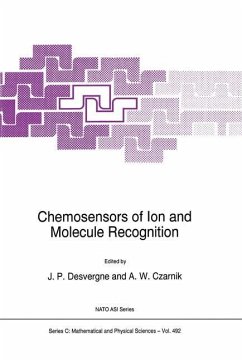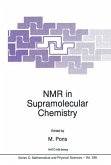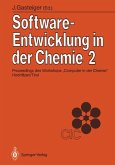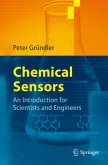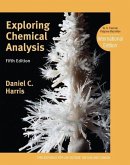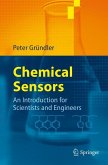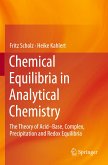In the broad field of supramolecular chemistry, the design and hence the use of chemosensors for ion and molecule recognition have developed at an extroardinary rate. This imaginative and creative area which involves the interface of different disciplines, e.g. organic and inorganic chemistry, physical chemistry, biology, medicine, environmental science, is not only fundamental in nature. It is also clear that progress is most rewarding for several new sensor applications deriving from the specific signal delivered by the analyte-probe interaction. Indeed, if calcium sensing in real time for biological purposes is actually possible, owing to the emergence of efficient fluorescent receptors, other elements can also be specifically detected, identified and finally titrated using tailored chemosensors. Pollutants such as heavy metals or radionuclides are among the main targets since their detection and removal could be envisioned at very low concentrations with, in addition, sensorsdisplaying specific and strong complexing abilities. Besides, various species of biological interest (or others, the list is large) including sugars and other micellaneous molecules such as oxygen and carbon dioxide can be actually probed with optodes and similar devices. The present volume in which the key lectures of the workshop are collected gives a survey of the main developments in the field. The success of the workshop mainly came from the high quality of the lectures, the invited short talks, the two posters sessions and the many very lively discussions which without doubt will produce positive outcomes.
Hinweis: Dieser Artikel kann nur an eine deutsche Lieferadresse ausgeliefert werden.
Hinweis: Dieser Artikel kann nur an eine deutsche Lieferadresse ausgeliefert werden.

